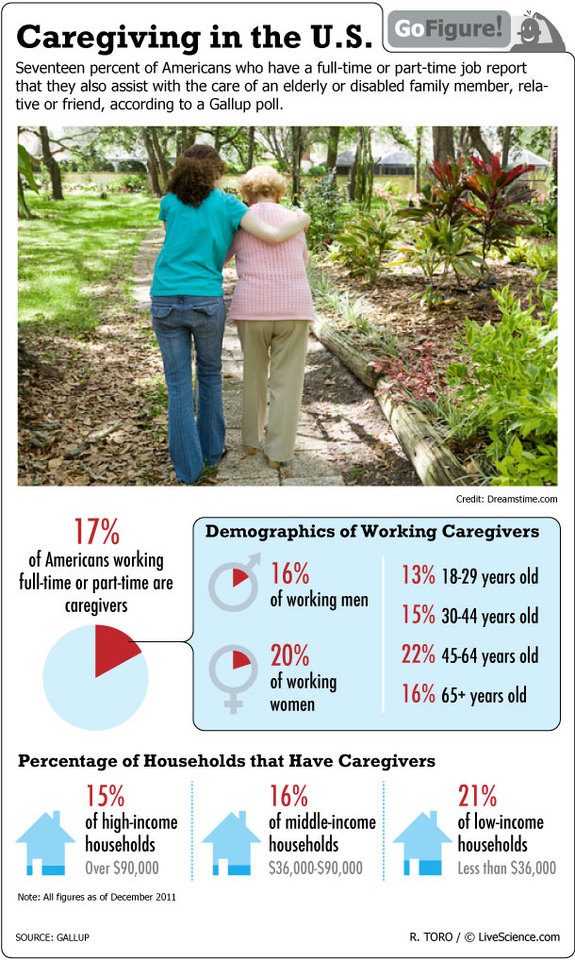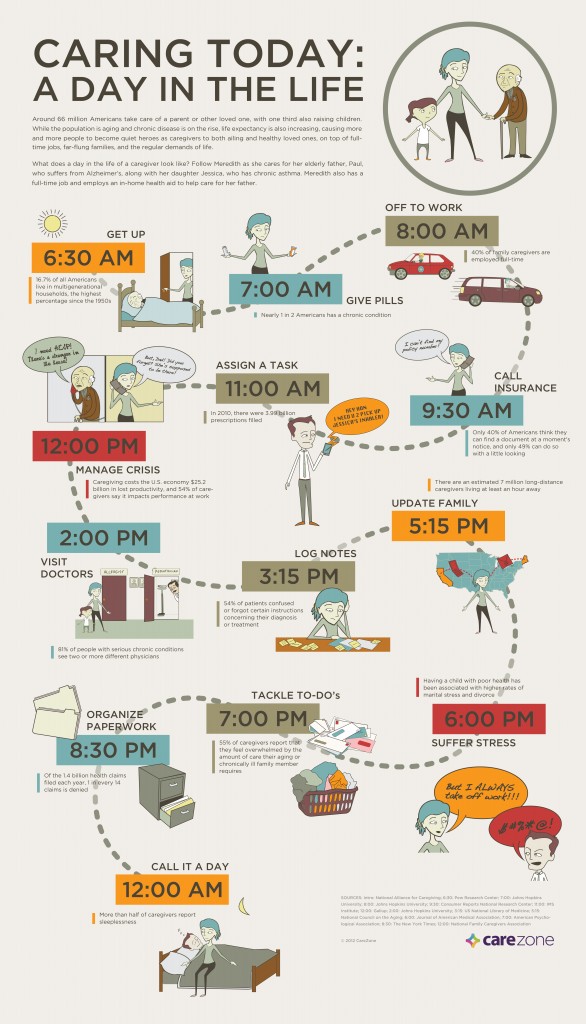Best Resolutions for Caregivers This New Year
Have you made your New Year’s resolutions yet? Many of us will start 2013 bound and determined to lose weight, de-stress, de-clutter, or get out of debt. Typical New Year’s resolutions focus on self-improvement. But if you’re the parent or caregiver of a special needs child, taking care of your own needs often takes a backseat. You’re probably too busy implementing the latest speech therapy techniques, driving your kids to occupational therapy sessions, etc. And when you’re not wrapped up in caregiver duties, you’re probably desperately trying to fulfill all of your career responsibilities – from preparing sales presentations to dealing with workplace uniforms to boost your company’s brand. And amidst that insanely busy schedule, there’s probably very little time to address your own needs. This New Year’s, resolve to take care of yourself so that you can better take care of everyone else.
Taking Care of Yourself
When was the last time you skipped a doctor’s appointment (for yourself) because you were simply too busy in your role as a caregiver? According to the National Alliance for Caregiving and Evercare, 55% of caregivers have reported skipping their own doctor’s visits. That same study revealed that 63% of caregivers do not follow healthy eating habits, and 58% have less-than-satisfactory exercise routines.
Those statistics are alarming, but perhaps not unexpected. It’s all too easy to put off your own needs when you’re attending to those of your children. But consider this: when you’re so burned out and fatigued that you start putting the milk in the oven and leaving the house wearing your PJs and slippers, what else are you going to forget? You won’t have the energy or attention span required to help your kids practice proper articulation (if you can even use proper articulation yourself!). Empower your special needs kids by empowering yourself as well.
Start Small
Taking care of yourself doesn’t have to mean hiring a live-in babysitter so you can take a week-long spa vacation (but feel free to dream about it!) Instead, start small. Carve out just one minute per day to do something good for yourself. When you realize that just one minute is more than manageable, increase it to 10 minutes. Enjoy a hot cup of tea by yourself (even if you have to lock yourself in the bathroom to get some alone time). Gradually try to expand your self-care time to include a quick exercise routine or a healthy home-cooked meal.
Reducing Your Stress
Evaluate the causes of stress in your life and look for ways to reduce or eliminate them. If a messy house makes you hyperventilate, create a family chore chart or consider hiring a housekeeper for an hour a week. Of course, you can’t eliminate all causes of stress (if we could, we’d all have clones who would cheerfully get stuck in traffic for us). So it’s also important to try to change your reactions to your stressors. Accept the fact that there are only so many hours in each day, and that you’ll do the best you can with what you’ve got.
Other stress-reduction tips to consider are:
- Take a yoga class (or just follow along to a yoga DVD)
- Join a parent support group
- Practice deep breathing when you start to feel stressed
- Repeat a positive mantra in your mind
- Stand up from your work desk and stretch now and then
http://www.youtube.com/watch?v=da-4GEaWK4I
Simplifying Your Life
Find little ways to simplify your life. If you like to throw get-togethers for your family and friends, perhaps they could share responsibilities by bringing a potluck dish.
Look for ways to simplify your caregiver duties as well, without compromising on standards of care. It’s important to regularly collaborate with your child’s teachers, speech therapists, and other professionals. But perhaps an email could substitute for a phone call now and then. As well, use at-home speech therapy techniques like Speech Buddies for quick and effective sessions. Even just a few minutes a day, a few times per week can help your child make incredible progress.




